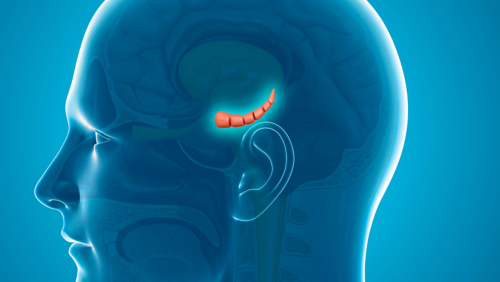St. Jude Family of Websites
Explore our cutting edge research, world-class patient care, career opportunities and more.
St. Jude Children's Research Hospital Home

- Fundraising
St. Jude Family of Websites
Explore our cutting edge research, world-class patient care, career opportunities and more.
St. Jude Children's Research Hospital Home

- Fundraising
St. Jude symposium to focus on hippocampus imaging in childhood cancer patients and survivors
Registration is open for the 3rd Annual Scientific Symposium titled “Imaging Structure and Functions of the Hippocampus.” The conference, set for February 25, is part of the Pediatric Biomedical Imaging Initiative of the Department of Diagnostic Imaging at St. Jude Children’s Research Hospital. This will be a hybrid event with all talks presented digitally for those who choose to join remotely, but a limited number of participants can attend in person.
Pediatric Cancer Survivors and Hippocampal Damage
“Survivors of childhood cancer almost always face learning challenges and memory problems,” said Asim Bag, MBBS, MD, and St. Jude’s director of Pediatric Oncology Imaging Education. “Cancer therapy- induced damage of the brain's hippocampus is one of the leading causes.”
Experts on hippocampal mediated memory functions and hippocampal imaging will update symposium participants on topics including molecular mechanisms of hippocampal damage, clinical outcomes and neurorehabilitation techniques. View the agenda and list of speakers.
Anyone involved in the field of neuroscience, from scientists to clinicians, will learn the latest in the field of hippocampal imaging. The program will also highlight how new techniques can support novel interventions to address therapy-induced hippocampal injury in pediatric patients.
Speakers
Michelle L. Monje, MD, PhD, professor of Neurology at Stanford University, will present the keynote lecture, Inflammatory Disruption of Hippocampal Neurogenesis in Cancer Therapy-Related Cognitive Impairment and Beyond. Her pioneering work has been instrumental in establishing how radiation therapies cause cognitive declines in patients. With this information, the field is finding ways to limit and repair damage to the hippocampus during and after radiation.
Craig Stark, PhD, professor of Neurobiology and Behavior at University of California, Irvine, will present this year’s Danny Thomas Lecture, featuring his work, Functional Imaging of the Hippocampus. Stark’s lab has developed a method to quantify alterations of hippocampal functions in real time MRI experiments, which is essential to improve care for survivors.
The afternoon session will focus on how clinical care can be altered to prevent damage to the hippocampus, or alternatively, revive functionality. When these clinical approaches are combined with the recent advances in real-time MRI techniques, researchers can quantitatively evaluate how well novel interventions prevent or repair hippocampal damage in this special pediatric population.
Registration is available here and closes Feb.15. The cost is $100 with an additional $25 for in-person attendance.
St. Jude Children’s Research Hospital is accredited by the Accreditation Council for Continuing Medical Education (ACCME) to provide continuing medical education for physicians. The symposium has been approved for clinicians, including non-physicians, to earn up to 7.00 AMA PRA Category 1 Credits by attending.







